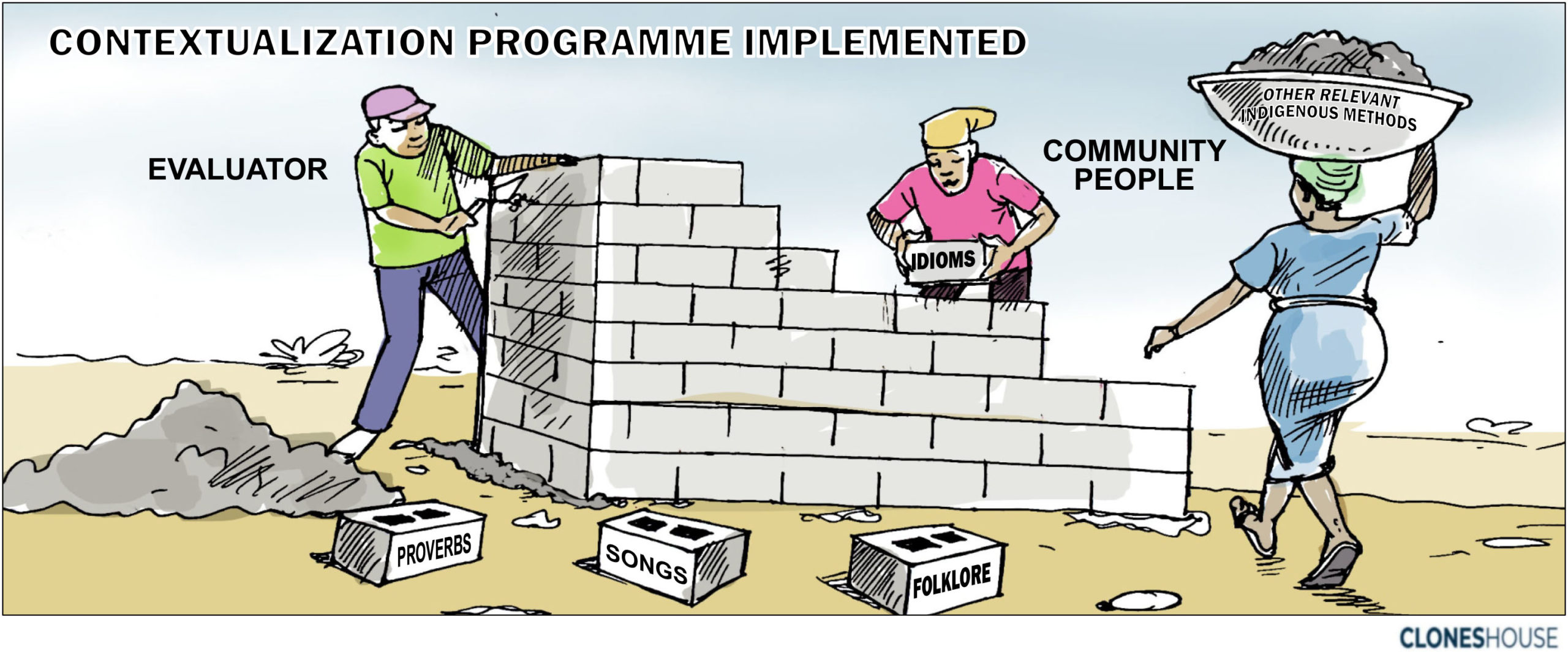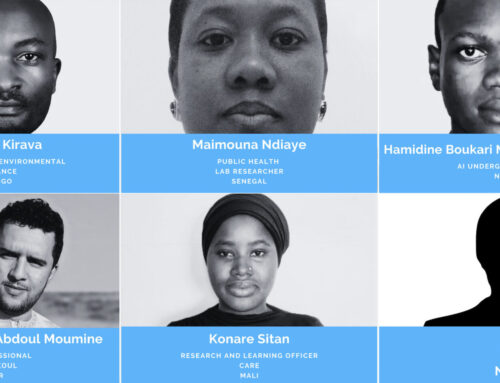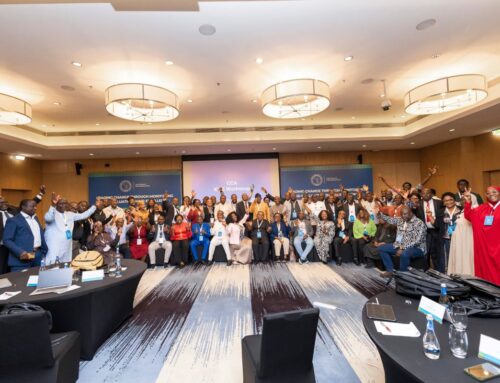‘’Any development model that ignores, marginalizes, or rejects the society’s indigenous culture is unlikely to be successful’’ ( Marvin A. Carlson). As an evaluator, this quote reinforced the importance of indigenous knowledge in development practices. The CLEAR AA -Decolonizing Evaluation Course by Mastercard Foundation, Inherent in the intent of the course, is to support and facilitate YIAs to think critically about analyzing power and positionality while approaching evaluations. The course comprises three modules (Introduction to Decoloniality, Contemporary African Evaluation Dilemmas, and Linking Decolonity to Evaluation). We had three sessions of three hours of Zoom discussion with the facilitators for each module. During the conversation with the facilitators, I was intrigued by how power dynamics affect and impact evaluation in international development. Here are four things I learned from Decolonizing Evaluation.
Power Dynamic in Evaluation: power dynamic in international development is seen as a major cause of disparity in the impact of development. Evaluators need to be aware of such asymmetry. This plays a critical role in the donor and evaluator’s relationship. One has more powers due to its accessibility to funds needed, and the other has first-hand information on the beneficiary. (Greene 2001; Trimble et al. 2012). Argues that Evaluation is not objective or value neutral. Evaluators need to take responsibility for their positioning,understand whose interests are being served by their work and reflect on how the outcomes they are measuring might be sustaining an unjust status quo. The negative impact of power dynamics in evaluation is; inappropriate study design and extractive evaluation. Unfortunately, when faced with such tensions, evaluators often implement evaluations whose goals and methods favor the most powerful donors.
Contextualization of Programme Implemented: Many donor-driven programs use logic models and theories of change that need to be better contextualized, leading to a lack of common development vision among program designers, implementers, and beneficiaries. To effectively evaluate the effectiveness of a program, it’s critical to understand the holistic context in which it is implemented, including the historical legacy of colonialism and its impact on social, political, and economic systems. Babler (2015) argues that every context is different,so evaluation has to be attentive to what people care about and are experiencing in their community. Gaotlhobogwe, M. et al, in their book Conceptualizing evaluation in African contexts. New Directions for Evaluation, agrees that communities should be involved in constructing the evaluation objectives that will take into account their cultural values and norms. Partnership between the evaluators and the community should be established at the initial stage. The usage of the Indigenous language will allow the participants to express themselves well using either proverbs, songs, folklore, idioms, or other relevant Indigenous methods that will help gather relevant and authentic information. It is through one’s language that one finds his/her true identity. The use of the community language restores their dignity of being recognized as people who have the knowledge and skills in doing the evaluation.
Participation of Diverse Stakeholders in Evaluation: There may not be a consensus among stakeholders, but as an evaluator uncovering this is an important step in achieving the desired goal. Each Stakeholder has a diverse influence in decision making. It is crucial to disaggregate the engagement as a key evaluation method. It is apparent that in international development programs, where diverse stakeholder groups collaborate, power asymmetries exist, and explicit attention to power sharing is necessary for evaluation programs to be impacted.The Institute of Development Studies (1998) noted that providing stakeholders the chance to participate in M&E becomes an opportunity for development organizations to focus better on their ultimate goal of improving poor people’s lives and broadening involvement in identifying change of which a clearer picture can be gained of what is really happening on the ground.
.
Power Sharing in Evaluation: sharing responsibility for decision-making and actions among stakeholders in collaboration. (Ran & Qi 2018) agrees that power sharing is more effective when stakeholders have successful collaboration experience and capacities in negotiation, strategy building, visioning, and professional knowledge. However, it can result in losing control over the direction of change, greater time and effort to manage relationships, and increased risk of escalation of conflict. As against to Hardy and Phillips (1998) stated that power sharing can result in the loss of control over direction of change, greater time and effort to manage relationships,and increased risk of escalation of conflict
Conclusion: The power dynamic in international development has brought several scenarios encountered by an evaluator in evaluating a program. Evaluators must take responsibility for their positioning, understand whose interests are being served by their work, and reflect on how the outcomes they are measuring might sustain an unjust status quo.
About the Author
Khadija Yahaya is a Budding Young Evaluator with three years of experience in the development sector. She’s a Young Impact Associate with MasterCard Foundation,She is an efficient team member, a Diplomatic communicator, and a self-motivated individual with the enthusiastic nature necessary to manage independent work in an organization .
References
- Building the Field of Community Engagement Partners and Babler, T, 2015, “Evaluation and Community Engagement
- Gaotlhobogwe, M., Major, T. E., Koloi‐Keaikitse, S., & Chilisa, B. (2018). Conceptualizing evaluation in African contexts. New Directions for Evaluation, 2018(159), 47-62.
- Greene, J.C., 2001, ‘Evaluation extrapolations’, American Journal of Evaluation 22(3),397–402
- Ran, B. & Qi, H., 2018, ‘Contingencies of power sharing in collaborative governance’,
The American Review of Public Administration 48(8), 836–851.
in an interorganizational domain’,Organization Science 9(2), 217–230





Very insightful. Thank you for sharing this. It’s like you brought the course to us without us going to the course.